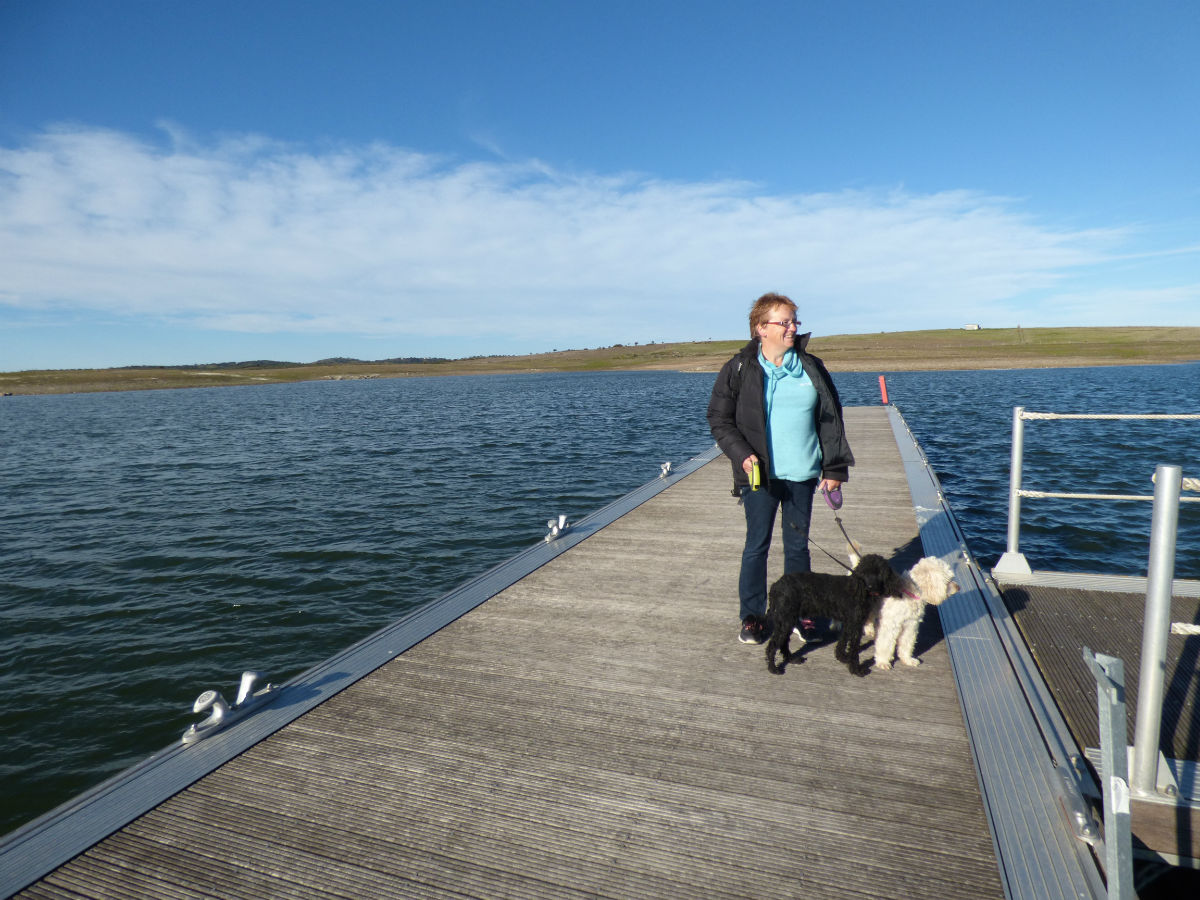Several people had recommended a visit to this village on the shores of the barragem Alqueva. Having just experienced it myself I can highly recommend it too. A visit to the museum is a must. Stay and watch the video, “My Village doesn’t live here anymore” – informative, moving and heartening.
A bit of history and geography – just a wee bit!

The land in this part of Portugal has been farmland for centuries but the water sources were limited and, gradually the land was drying out. If nothing was done it would become desert. Many experts discussed the problem and decided the only solution was to close the floodgates on the Alqueva dam controlling the flow of the River Guadiana and let the valley flood to make a huge reservoir (barragem). The result of this is one of the biggest reservoirs in Europe, guaranteeing enough water to sustain agriculture in a huge area.
The Downside, the sacrifice
The village of Luz (“Light”) nestled in the valley which was about to become part of the barragem. It would be totally submerged. The video in the museum tells the story of the people of the village leaving their homes and relocating to a new village built on higher ground. The children were excited about their new homes – “We have our own room – don’t have to share with our parents!” The older villagers struggled. One 71 year old man said, “I’ve lived in this house since I was 2 years old. I don’t know how it’s going to be in the new place.”
A scene in the video shows women in the village graveyard placing fresh flowers on graves, whitewashing headstones and memorials and crying. All the graves had to be emptied and the dead moved to the new cemetery in the new village. It was heartbreaking to watch. A priest said prayers, the cemetery gates were locked and high fences built round the perimeter to screen the exhumations.
Each year the villagers process through the streets carrying an effigy of the Virgin Mary. Each year the effigy is returned to the church. On what was to be the final procession the priest addressed the crowd and praised them for their great sacrifice, losing their homes for the greater good of so many. He spoke of the sacrifice of Jesus. In a very religious community I like to believe this brought them some comfort. But what a sacrifice!

Many tourists came to Luz having heard the story of the imminent demise of a whole village. One tourist interviewed said, “Well, I’d just refuse to go! I wouldn’t give up my home!” I don’t think she realised how hard it was for those who were losing their homes. I admired those villagers even more, coming together in their loss, not fighting against the inevitable but quietly accepting it.
On the day of the final move out that 71 year old man was interviewed again. He stood tall and said, “It’s hard, but not as hard as losing someone you love, one of the family. It’s a house.” And then he cried, turned away from the camera and took out a huge handkerchief. The village was flooded on February 8th 2002.
The villagers were shown their new houses in the new village. The clerk of works was, at times, quite unsympathetic. One man said there wasn’t room for his cooker or his fridge in the kitchen. The official told him he’d have to sort that out himself. One woman complained there was no fireplace in the kitchen. The official told them they weren’t recreating every house exactly. If they did that they wouldn’t have all the modern conveniences that had been included in the new houses. “Do you want us to take them all away?” I know he was probably exasperated, doing a difficult job but, as Margaret remarked, his comments are now on record for all to hear.

I walked back from the museum through the village. It all felt a bit sterile. Some of the streets have no names. “Rua G” or “Rua 3”. Then I reached the village square and there were the old boys in their flat caps and winter jackets, having a smoke and a blether. Communities are not about bricks and mortar, they’re about people and these people have touched my heart. I’ll never forget their story.
At the end of the video the young girl who had introduced it and given it it’s title said, “When I left my old village it was raining and dull. Today it is sunny!” The film ended with her beautiful smile.



Shirley, that is a beautiful story, and so well written. Thank you. xx
Thank you x x